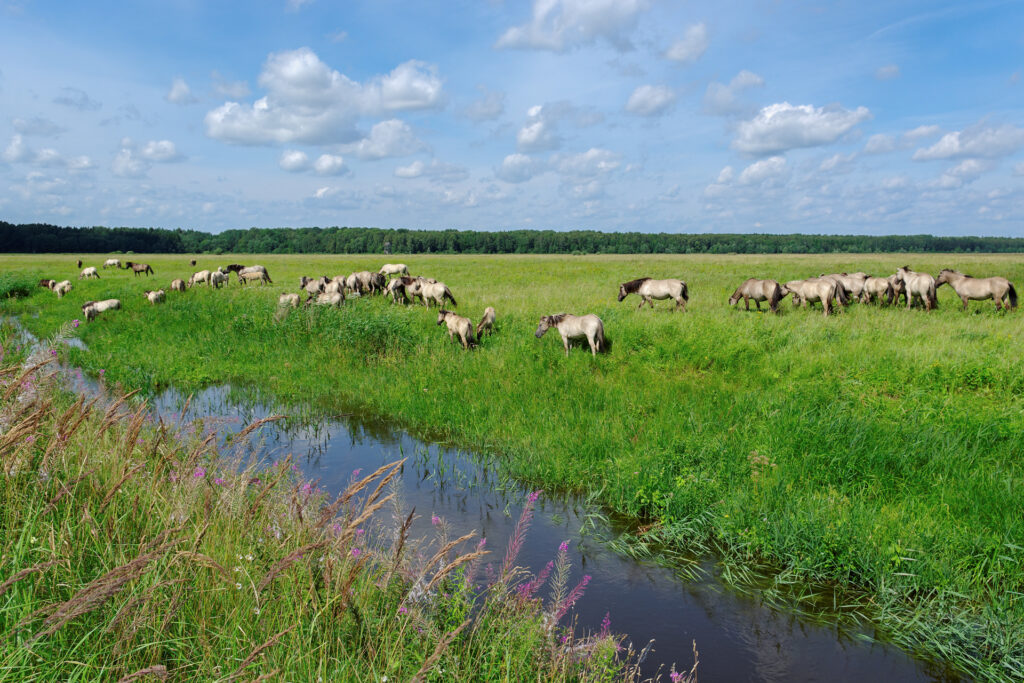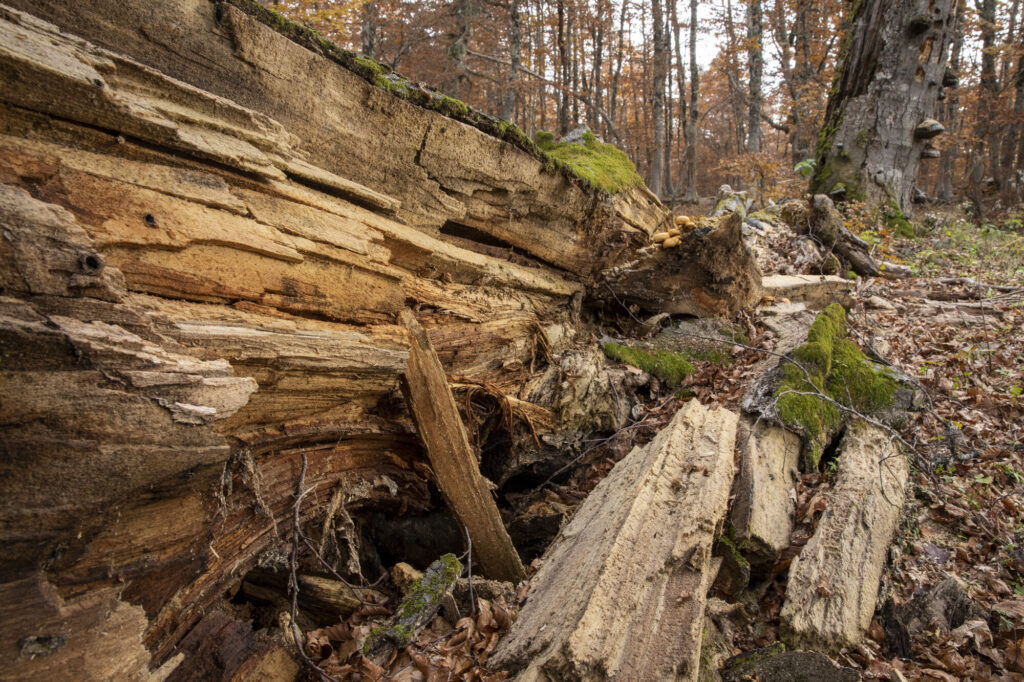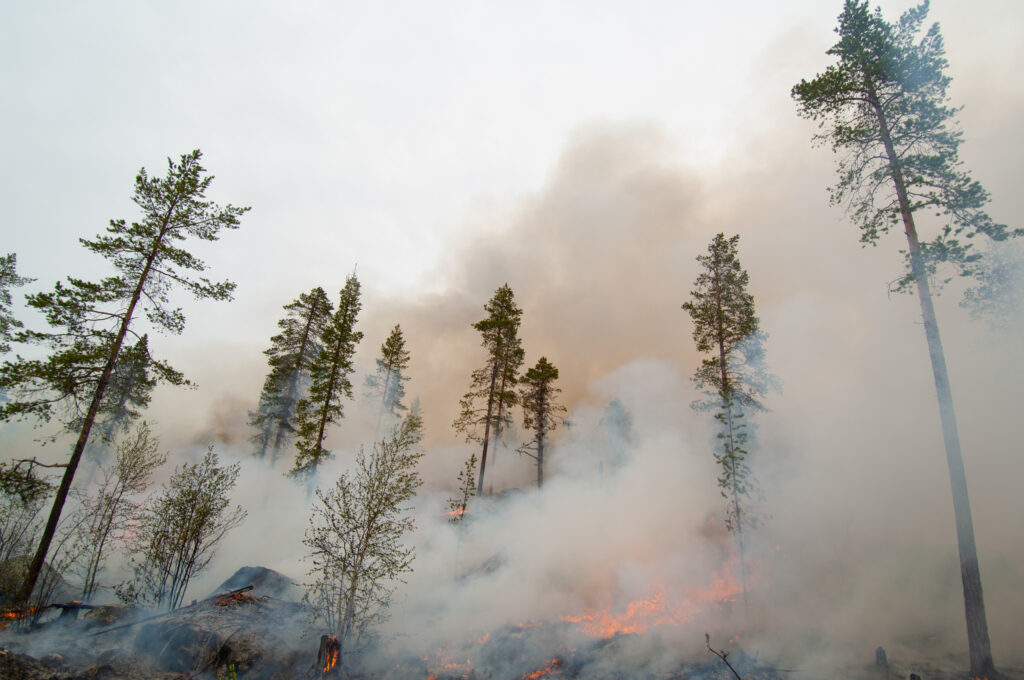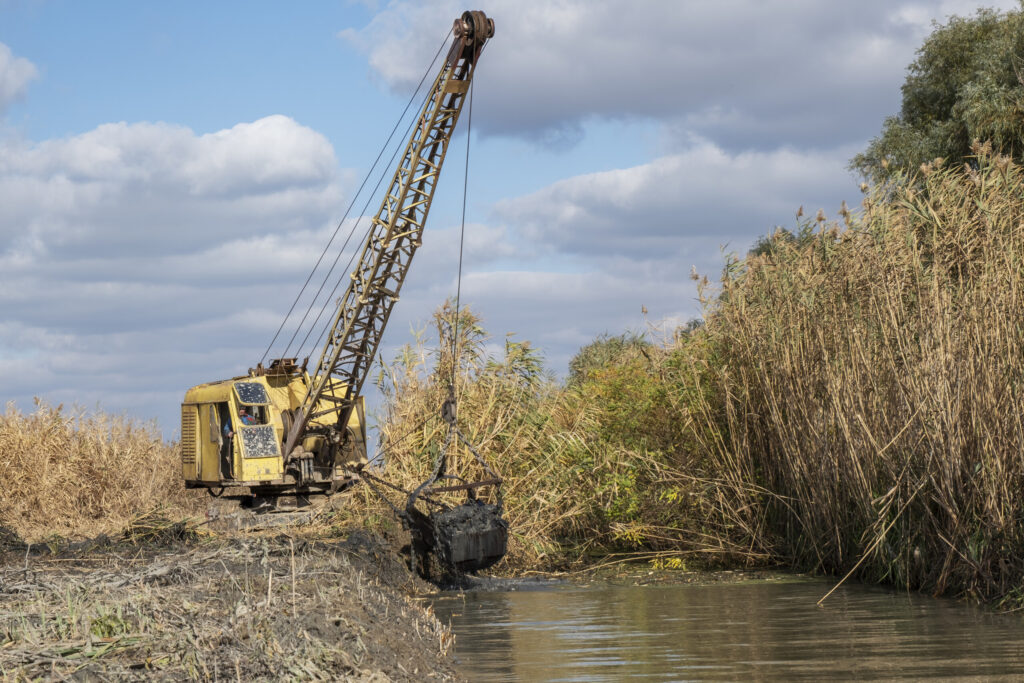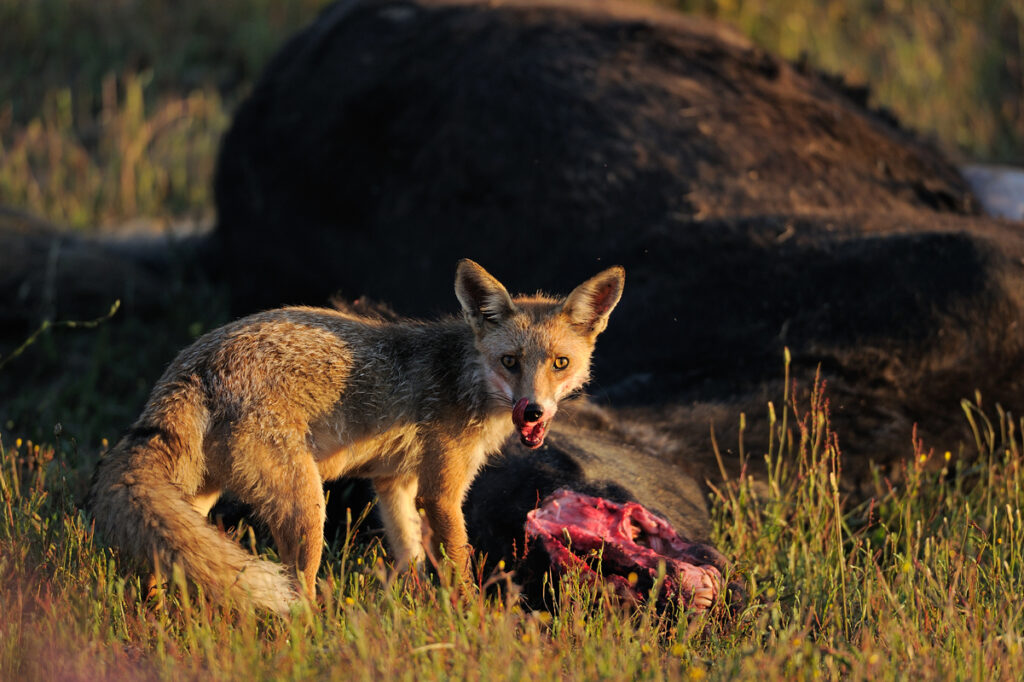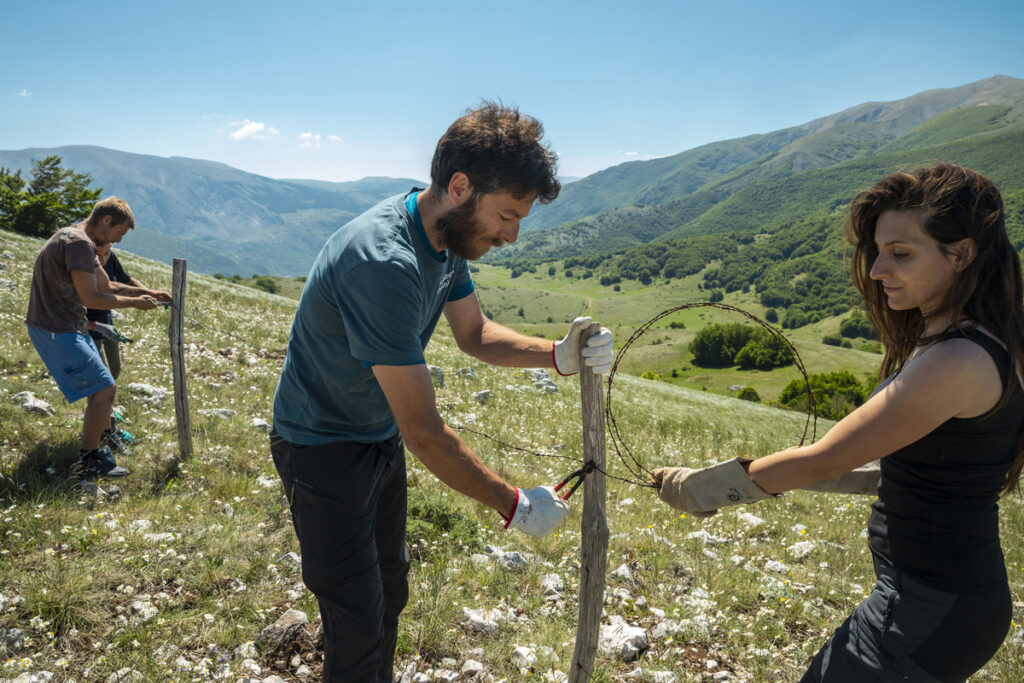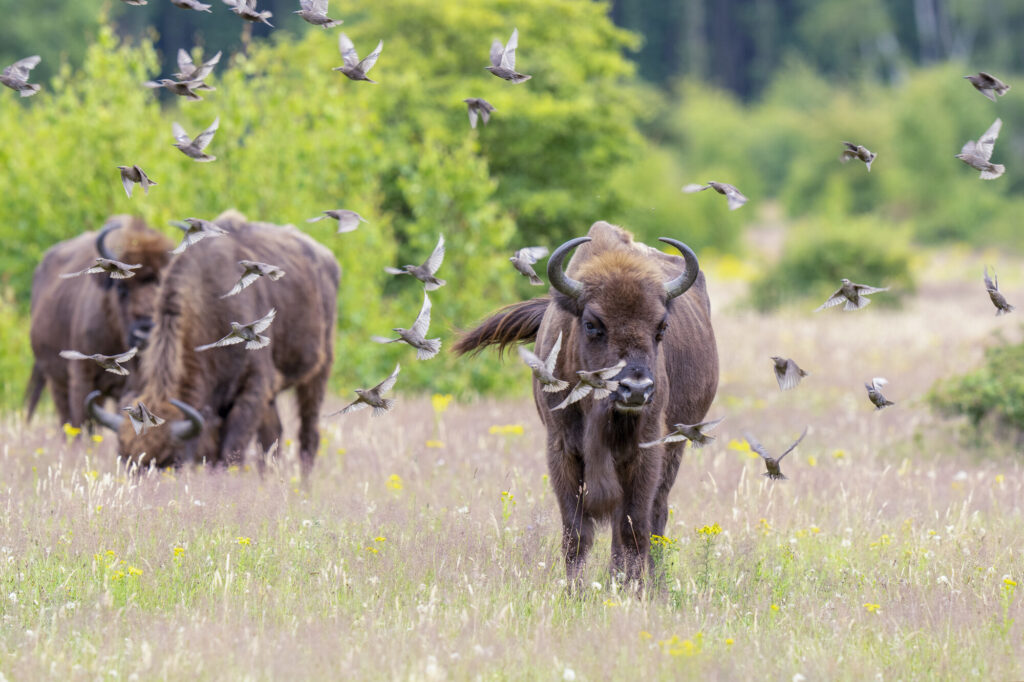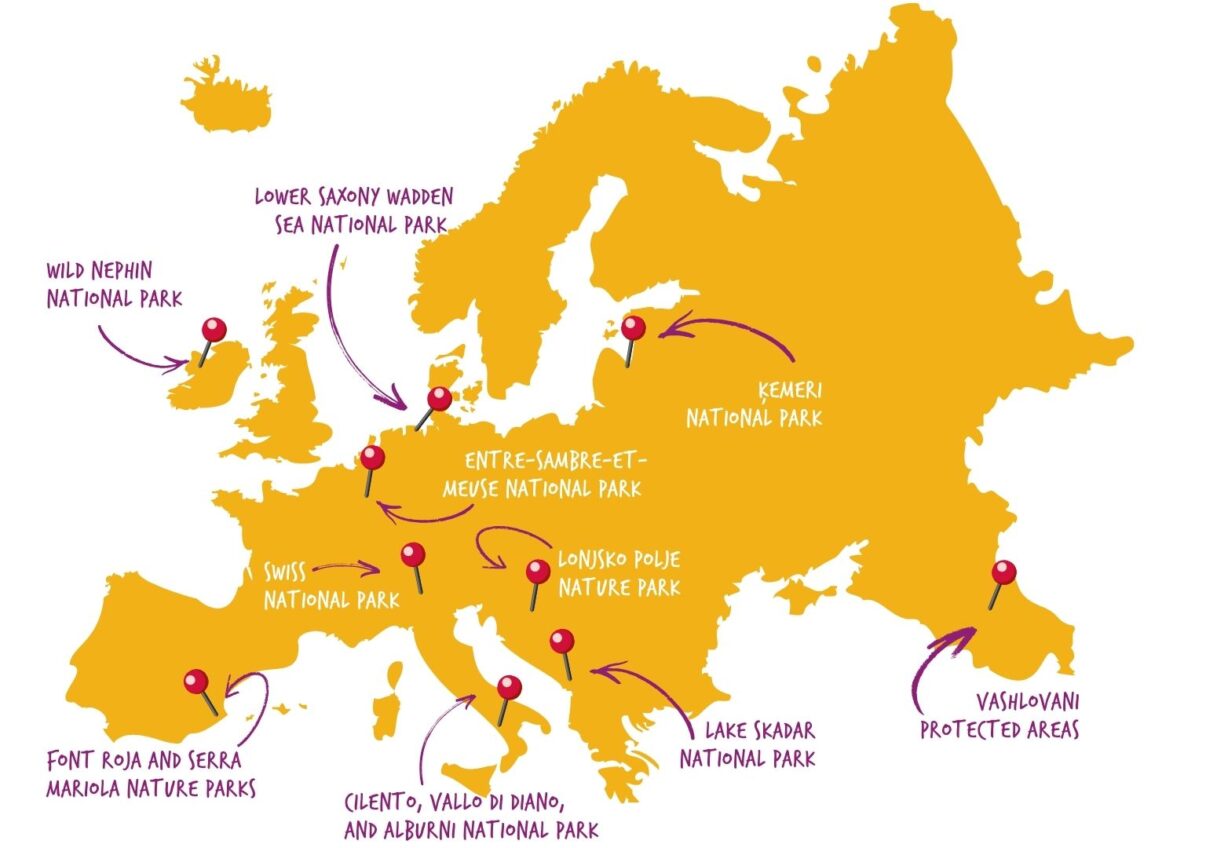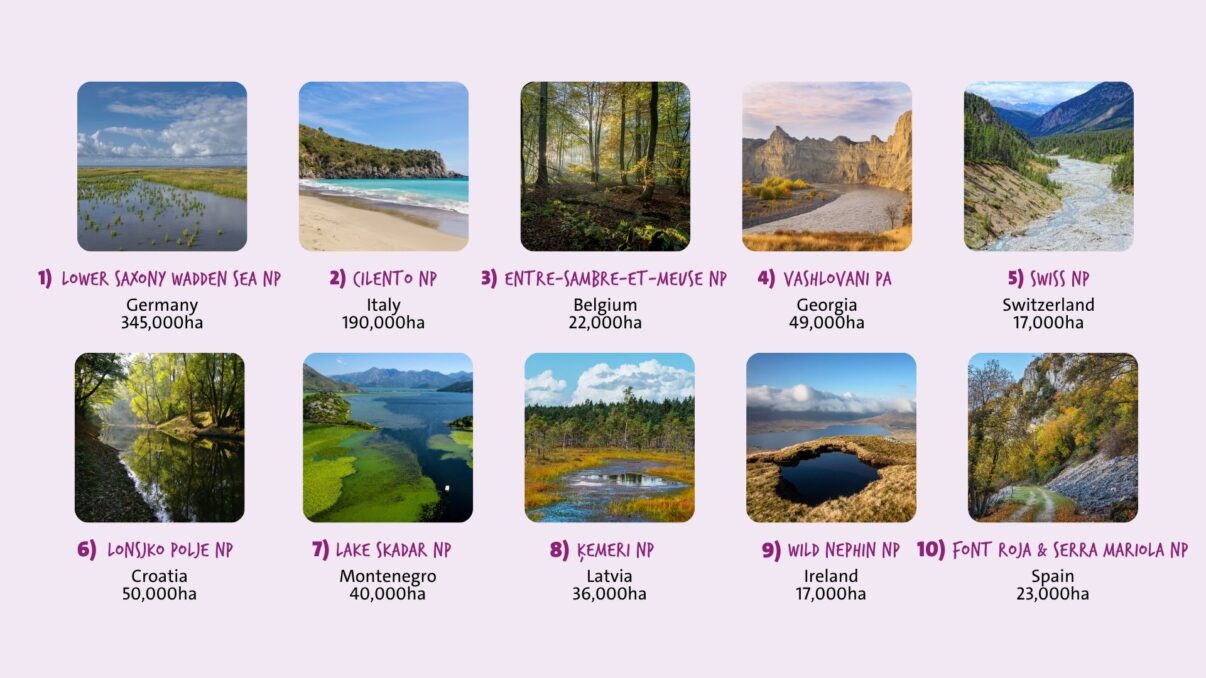Protected areas lie at the heart of European conservation. The Wilder Parks initiative will build on the achievements of these areas, leveraging the power of rewilding to breathe new life into ecosystems and deliver lasting benefits for nature, climate, and people — at scale — right across the continent.

What is Wilder Parks?
Wilder Parks is an exciting and ambitious initiative that will see Rewilding Europe collaborate with a growing number of European protected areas. Through carefully curated partnerships, Rewilding Europe will help the 10 first Wilder Parks to accelerate nature recovery, scaling up the transformative power of rewilding across the continent.
These Wilder Parks will serve as rewilding showcases — inspiring other protected areas to follow their lead and catalysing systemic change in the way Europe’s vast protected area network is managed. Applying and integrating rewilding principles into the management of these parks will enhance the huge potential of protected areas to deliver benefits to European citizens and nature, helping them both thrive together on an unprecedented scale.

Empowering and showcasing rewilding pioneers
Some pioneering protected areas in Europe are already taking a progressive approach to nature recovery. By joining the Wilder Parks initiative, they will serve as powerful demonstrations of what’s possible — inspiring other protected areas to embark on their own rewilding journeys.
Collaboration with Rewilding Europe will accelerate this work and provide a platform to showcase their success. Fostering a fundamental shift in how protected areas are managed across Europe, the Wilder Parks initiative will amplify efforts to restore and rewild nature in Europe on an ever-increasing scale.

How will Wilder Parks work?
A collaborative effort between Rewilding Europe and protected areas across Europe, the scope and impact of the Wilder Parks initiative will increase over time.
• As of 2025, 10 protected areas have been selected as frontrunner Wilder Parks. Through till 2030, Rewilding Europe will work with these pioneers to support their practical rewilding efforts, with rewilding principles informing their management practices.
• As of 2027, a second phase of expansion will see 20 additional protected areas become partners in the Wilder Parks initiative.
• By 2030, 30 Wilder Parks will be inspiring more protected areas to adopt rewilding.
The ultimate goal is that rewilding will be recognised among protected area professionals as an impactful and cost-effective approach to nature recovery, enabled by policies, education, and peer networks that support rewilding action.
Wilder Parks: the bigger picture
Protected areas are the backbone of European nature conservation. In the EU alone, there are around 62 million hectares of protected areas (over 29,000 sites), which provide huge benefits to people and nature. Across the whole of Europe, and including the protected areas of the Emerald Network, the number of sites exceeds 120,000 — more than any other region in the world.
One might assume that nature within these protected areas is safe and thriving, as their status suggests. Yet across Europe, many have been impacted by the long-term ecological degradation that has happened on a continental scale — which means restoring their ecological integrity has become a pressing priority. Encouragingly, a growing number of parks are already embracing rewilding, demonstrating that with the right actions, there is immense potential to restore nature in protected areas across the EU.
This will deliver multiple benefits:
It will help address our biodiversity and climate crises.
It will help build a society where people and nature thrive together.
Letting nature lead
There are a wide range of rewilding measures that Europe’s protected areas can employ to create the right conditions for nature recovery. These include allowing forests to naturally regenerate, removing dams and restoring natural water regimes, employing more natural ways of managing wildlife, enhancing natural grazing, leaving carcasses in nature, improving connectivity, reintroducing keystone species, and many more — all with the aim of restoring natural processes and food webs.
Top 10 measures for enhancing wildness in European parks
In conjunction, these measures help to enhance the health, connectivity, functionality, and resilience of natural ecosystems. Working with communities and stakeholders across such areas, the overall aim is to create spaces where nature manages itself to the fullest extent possible — a cost-effective approach with beneficial outcomes for nature, climate and people.
The 10 frontrunner parks
From Ireland in the west to Georgia in the east, we have worked for over two years with experts and a large number of protected area authorities to carefully select 10 parks as the frontrunners in the Wilder Parks initiative.
Next steps
Moving forwards, the partnership agreements signed between Rewilding Europe and the 10 frontrunner parks will see the following range of actions carried out:
- Measurement of the baseline situation in each Wilder Park through application of the rewilding score.
- Implementation of practical rewilding measures within the parks.
- Promotion of knowledge exchange between the wider Wilder Parks network and the wider protected area community.
- Showcasing the rewilding actions and experience of the Wilder Parks network through compelling stories and tools.
- Engagement with local communities within and around frontrunner parks, and promotion of businesses involved in nature-based tourism on Wilder Places — Rewilding Europe’s travel booking platform.
- Production of tools and conducting capacity building to help protected areas carry out self-assessment and identify ways they could rewild.
- Launch of a second group of Wilder Parks from 2027.
- Reassessment of the first 10 frontrunner parks to evaluate the impact of the Rewilding measures they have carried out, and showcasing the results (2030).
These actions will see rewilding systematically integrated into protected area management on a growing scale. By fostering this paradigm shift — in collaboration with strategic partners such as the EUROPARC Federation — the Wilder Parks initiative will amplify efforts to rewild nature across the continent.
We need your support
Rewilding Europe is looking for more financial partners and donors to make Wilder Parks a success. If you’re interested in helping us unlock the huge rewilding potential of Europe’s network of protected areas, or would like further information, please contact Rewilding Europe’s Head of Philanthropy, Leonard Sprik.
The Wilder Parks initiative is currently supported by the ForestPeace Foundation, Arcadia, and the Dutch Postcode Lottery.


